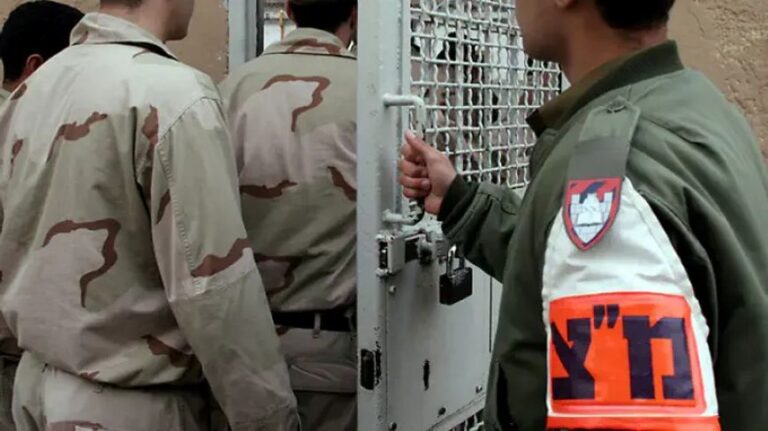Dear Klal Yisroel,
We are all aware that many of our local mosdos are struggling with tuition collection. I would like to share a small idea that came to mind and hear your feedback.
If I go to a local grocery store and ask for my weekly groceries without paying because I am struggling, I do not expect them to be able to help me. In fact, once I forgot my credit card and asked the store to put the amount “on account,” and they flatly refused, explaining that they do not offer accounts. Simply put, most stores cannot allow people to take without paying.
However, if one cannot afford food, there is Tomchei Shabbos—a remarkable organization that provides for families without red tape, waiting lists, or prequalification. When Tomchei Shabbos fundraises, the community understands its value and makes it a top priority to support them.
Can we create a similar model for our mosdos? Here’s the idea:
- Every family would remain responsible to pay full tuition.
- If a family truly cannot, they would apply to a third-party fund—let’s call it Tomchei Mosdos—for assistance.
This could benefit the community in a few ways:
Accountability: It is harder to request help from a third-party organization than from one’s own school, which may reduce the casual assumption that “the school will understand.” Families will naturally prioritize tuition more seriously.
Fundraising Power: Just as we saw last year when Roshei Yeshiva came from Eretz Yisroel and raised about $14 million in Lakewood alone for mosdos there, a centralized, b’achdus-driven effort on behalf of our local mosdos could be transformative. Unified campaigns can generate greater excitement—and greater results.
Of course, an organization of this kind will require true doers to take it to the next level. If you feel you are in a position to help launch such an initiative, please reach out by email to [email protected]. Kindly include your title (Rabbi, Mr., Miss, etc.), full name, best contact information, and the city you are from.
We also welcome your feedback—whether positive, negative, or suggestions for alternative solutions—so that we can properly gauge how the community might respond to such an initiative.
May we be zoche to a year of geulah and yeshuah for Klal Yisroel.
Signed,
M.F.
The views expressed in this letter are those of the author and do not necessarily represent those of YWN. Have an opinion you would like to share? Send it to us for review.












12 Responses
The Roshei Yeshiva that came last year from EY made a lot more than 14 million dollars..
Good idea, curious why you feel the need to post anonymous
I feel horrible saying this during Elul, but untruth is similarly painful. I have seen certain mosdos receive donations that were brought in to cover an outstanding account, only to refuse to forgive that amount from the parent. I haven’t a challenge that a mosad that is hard pressed wants to double dip. But to pressure a parent when the account was already settled is unconscionable. The administrator claimed that this control over parents was critical. Yecchh.
The idea is an interesting one. My skepticism shines again, and leaves me wondering whether this will be managed with complete honesty. I know it’s Elul.
Sorry to bust your bubble but
1 why would you centralize to one body to decide who can or cant afford to pay tuition or how much tuition a person is capable of each mosad should have a direct connection to its parent body and tuition negotiation can definatly lead to a positive relationship if done right and in a honest respecting form.
2 I would imagine if there is an external fund that funds all the mosdos people would stop paying tuition since the mosad can draw the funds from the big pool. if ya know what i mean people are alreay complaing about the price of tuition and that the schools have so much money and government funding and programs….
3 if the fund pool cannot cover the budgets of all enrolled mosdos who will make the decision as to which mosad will receive full funding and which wont or which individual will get tuition support and which wont.
4 ultimately if there isnt enough funds to fill the gap the mosdos that dont receive enough money will have to fundraise for themselves which brings you back to the existing model so why rock the boat????
You clearly do not understand the financial dynamics of mosdos nor a real understanding on how frum philanthropy works,
Tuition has more than tripled in 20 yrs , the numbers we call normal today are astronomical…a reg hs fee is more than special needs a decade ago.
The idea that klei kodesh are paying for their own son in a mesivta or in a learning camp more than their parents paid for 4 kids in camp
Can every father make 150 k a yr,? A reg company cannot pay 150k to more than a handful of top workers before they close….u laughing because what’s 150
Such a fund wud just raise the fees let me give an example ..imagine there was a fund to help pay for root canals and braces and it gave 1000 toward the cost, within a wk root canals wud go from 1200 to 1800 bec.theyre giving…
Everyone knows somebody, if you have a friend struggling don’t rely on an org to help him. He prob won’t even ask someone. Alot of people are ashamed. Send him money, pay his grocery bills. Your giving maaser anyways. Everyone knows _someone_
Orgs are for people you dont know..
Regardless it sounds like a great idea but, people are going to really struggle if it’s implemented
The problem seems to be twofold.
1) Each year, there appears to be an increase in the amount of parents receiving some sort of “scholarship”, aka severely reduced tuition because they are in kollel or klei kodesh (Yes, there are a minority facing severe economic hardship and really need the reduced tuition). Thus, the huge tuition increases for the middle and upper class, because someone needs to subsidize those scholarships.
2) 100% agree that there are many who don’t view tuition as a bill akin to buying clothing or food, where there is no such thing as breaks. If schools continue to agree to massive reductions in tuition for 35% – 40% of the student body, and then try to squeeze that excess out of the upper 60%, it’s a recipe for disaster, and of course bound to fail.
There are some Mosdos that require parents to give their Ma’aser to the school, whether in lieu of missed tuition payments or other. I think in pre war Europe there was a community fund for tuition. One is required to sell a Sefer Torah in order to teach children Torah. There definitely should be mandatory Tzedakah given to local schools.
In my opinion, schools have a spending problem not an earnings problem. They don’t need GIANT Brand New Buildings. And they should NEVER buy anything from a retail store!!!! I don’t care if its lunch, or a gift for teachers or prizes for the kids or paper or toner. I work in retail, you know how many schools shop retail??? ITS CRAZY! Buy wholesale!!! Its true with everything, you need work done, hire someone who’s gonna do it himself, NOT A CONTRACTOR!! My wife worked in multiple schools and numerous times the principals would ask “so and so is going to Staples, do you need anything?” REALLY?? STAPLES?!?
Spending problem, not an earnings problem
There is money for everything except tuition assistance. We as a society don’t value torah education for our children enough to help others with it, but everytime someone dies we blow another 80 grand to help them write another Torah that usually just sits in storage or gets read from twice a year. For stupid galas we have money but a needy child we turn away. Chassidim cared enough to prioritize tuition subsidies in their society but our priorities are beyond corrupt
Sadly, for many families, paying tuition is a lower priority than their other bills and yeshivos have indirectly encouraged this behavior by allowing those with deliquent accounts to keep sending their kids to class without consequences. There is a mindset that “the teacher will be there anyway with the other kids” so I’m not really imposing any additional cost by delaying my payments. Obviously, this is not true since the schools may have to increase tuition for those who do pay on time, reduce payroll or staff or take out loans to cover the deficit if the usual fundraising efforts are insufficient. Yes, there are families in real financial difficulty but a Yeshiva is not a Gemach and its grossly unfair to assume that they can absorb the cost of educating students whose parents are unwilling or unable to pay their tuition.
Think like businessmen. Not every yeshiva deserves to be funded. Lakewood has too many yeshivos. This puts financial strain on community.